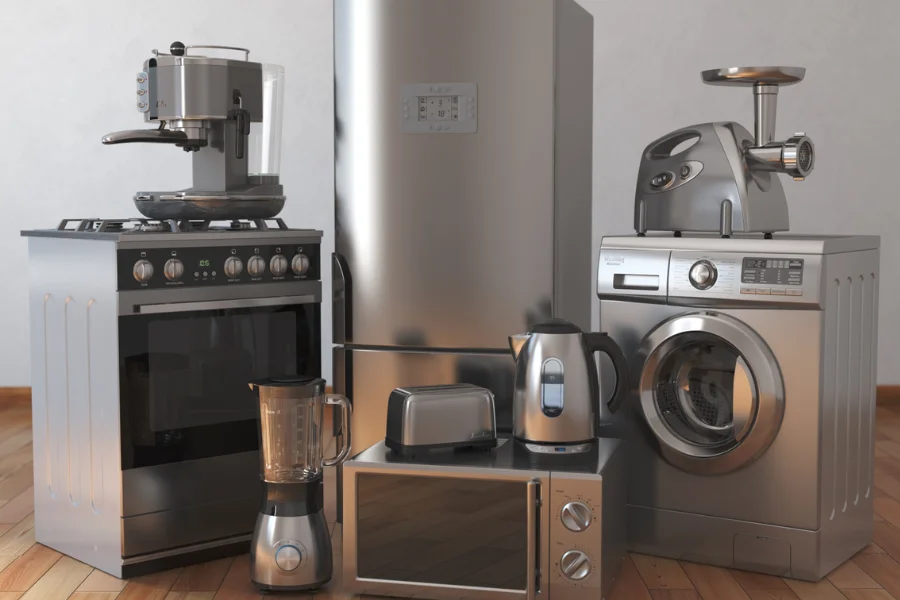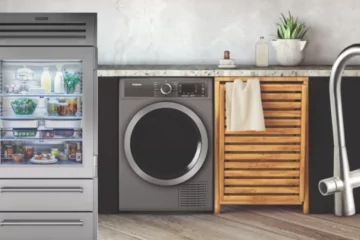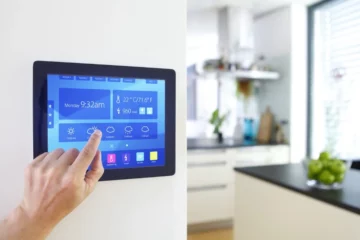The Ultimate Guide to Choosing Energy-Efficient Home Appliances

Energy-Efficient Home Appliances | bebevy
In today’s world, where environmental concerns are at an all-time high, it is essential to take steps to reduce our carbon footprint. One of the best ways to do so is by investing in energy-efficient home appliances. Not only are these appliances better for the environment, but they can also help you save money on your utility bills. In this comprehensive guide, we will walk you through everything you need to know about energy-efficient appliances, including how they work, their benefits, and what to look for when shopping for them.
Benefits of using energy-efficient appliances
There are many benefits to using energy-efficient appliances, including environmental, financial, and personal benefits. First and foremost, energy-efficient appliances help reduce your carbon footprint by using less energy to perform the same tasks as traditional appliances. By using less energy, you can help reduce greenhouse gas emissions, which contribute to climate change.
In addition to environmental benefits, energy-efficient appliances can also help you save money on your utility bills. Since these appliances use less energy, they can help you reduce your monthly energy bills significantly. Over time, these savings can add up to a significant amount of money.
Finally, energy-efficient appliances can also provide personal benefits. For example, many of these appliances are designed to be quieter and more efficient than traditional appliances. This can help create a more comfortable living environment, as well as reduce noise pollution in your home.
How to read energy labels
When shopping for energy-efficient appliances, it is essential to know how to read energy labels. These labels provide information about the appliance’s energy efficiency, helping you make informed decisions about which appliances to purchase. Energy labels typically include information about the appliance’s energy consumption, energy efficiency rating, and annual energy cost.
The energy consumption rating is usually displayed in kilowatt-hours (kWh) per year. This tells you how much energy the appliance uses in a year. The energy efficiency rating is usually displayed on a scale from A to G. Appliances with an A rating are the most energy-efficient, while those with a G rating are the least efficient.
Finally, the annual energy cost is an estimate of how much it will cost to run the appliance for a year. This can help you compare the cost of different appliances and choose the one that will provide the most significant savings over time.
Understanding energy ratings
When it comes to energy-efficient appliances, understanding energy ratings is essential. Energy ratings are designed to help consumers make informed decisions about which appliances to purchase. These ratings are typically displayed on a scale from A to G, with appliances with an A rating being the most energy-efficient.
In addition to the energy rating, appliances may also have an EU energy label. This label provides additional information about the appliance’s energy performance, including its energy consumption, energy efficiency rating, and annual energy cost.
It is important to note that energy ratings may vary depending on the type of appliance. For example, refrigerators may have different energy ratings than washing machines or dishwashers. When shopping for energy-efficient appliances, be sure to look for the energy rating specific to the type of appliance you are purchasing.
Types of energy-efficient home appliances
There are many different types of energy-efficient home appliances available on the market today. Some of the most popular energy-efficient appliances include refrigerators, washing machines, dryers, dishwashers, and air conditioners. Each of these appliances is designed to use less energy than traditional appliances, helping you save money on your utility bills while reducing your carbon footprint.
When choosing energy-efficient appliances, it is important to consider your specific needs and budget. For example, if you have a large family, you may need a larger refrigerator or washing machine. Similarly, if you live in a hot climate, you may need a more powerful air conditioner.
Features to consider when choosing energy-efficient appliances
When shopping for energy-efficient appliances, there are several features to consider. First and foremost, you should look for appliances with a high energy efficiency rating. Appliances with an A rating are the most energy-efficient, while those with a G rating are the least efficient.
In addition to the energy efficiency rating, you should also consider the appliance’s size and capacity. For example, if you have a large family, you may need a larger refrigerator or washing machine. Similarly, if you have a small kitchen, you may need a compact dishwasher.
Other features to consider include the appliance’s noise level, ease of use, and durability. By choosing appliances with these features, you can ensure that you are getting the most value for your money.
Energy-efficient appliances for different rooms in your home
Different rooms in your home may require different types of energy-efficient appliances. For example, in your kitchen, you may want to invest in an energy-efficient refrigerator, dishwasher, and oven. In your laundry room, you may want to invest in an energy-efficient washing machine and dryer.
In your living room, an energy-efficient air conditioner or heater can help keep your home comfortable while reducing your energy consumption. In your bathroom, an energy-efficient water heater can help you save money on your energy bills while providing hot water when you need it.
Tips for maintaining energy-efficient appliances
To ensure that your energy-efficient appliances continue to provide optimal performance, it is essential to maintain them properly. One of the best ways to do so is by cleaning them regularly. For example, you should clean your refrigerator’s coils and vents to ensure that it is running efficiently.
You should also avoid overloading your appliances, as this can lead to decreased performance and increased energy consumption. Finally, you should have your appliances serviced regularly to ensure that they are working correctly and efficiently.
Common myths about energy-efficient appliances
There are many myths about energy-efficient appliances that can prevent people from investing in them. One of the most common myths is that energy-efficient appliances are more expensive than traditional appliances. While it is true that energy-efficient appliances may cost more upfront, they can help you save money on your utility bills over time, making them a worthwhile investment.
Another common myth is that energy-efficient appliances are less effective than traditional appliances. In reality, energy-efficient appliances are designed to perform just as well as traditional appliances while using less energy.
Conclusion
Investing in energy-efficient appliances is an excellent way to reduce your carbon footprint and save money on your utility bills. By understanding how energy ratings work, what features to look for, and how to maintain your appliances, you can ensure that you are getting the most value for your money. Whether you are shopping for a new refrigerator, washing machine, or air conditioner, be sure to choose an energy-efficient model to get the most significant savings over time.








